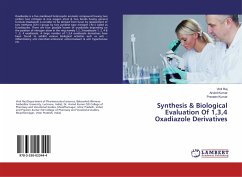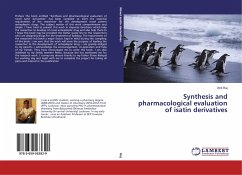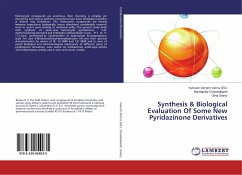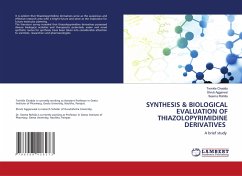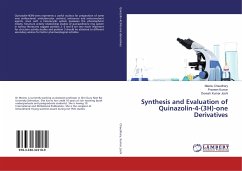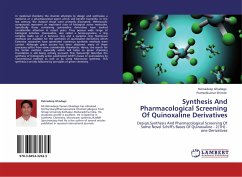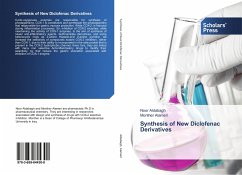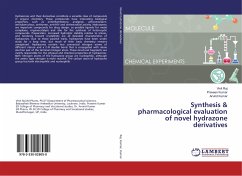
Synthesis & pharmacological evaluation of novel hydrazone derivatives
Versandkostenfrei!
Versandfertig in 6-10 Tagen
33,99 €
inkl. MwSt.

PAYBACK Punkte
17 °P sammeln!
Hydrazones and their derivatives constitute a versatile class of compounds in organic chemistry. These compounds have interesting biological properties, such as antiinflammatory, analgesic, anticonvulsant, antituberculous, antitumor, anti-HIV and antimicrobial activity. Hydrazones are important compounds for drug design, as possible ligands for metal complexes, organocatalysis and also for the synthesis of heterocyclic compounds. Preparation, increased hydrolytic stability relative to imines, and tendency toward crystallinity are all desirable characteristics of hydrazones. Due to these positi...
Hydrazones and their derivatives constitute a versatile class of compounds in organic chemistry. These compounds have interesting biological properties, such as antiinflammatory, analgesic, anticonvulsant, antituberculous, antitumor, anti-HIV and antimicrobial activity. Hydrazones are important compounds for drug design, as possible ligands for metal complexes, organocatalysis and also for the synthesis of heterocyclic compounds. Preparation, increased hydrolytic stability relative to imines, and tendency toward crystallinity are all desirable characteristics of hydrazones. Due to these positive traits, hydrazones have been under study for a long time, but much of their basic chemistry remains unexplored. Hydrazones contain two connected nitrogen atoms of different nature and a C-N double bond that is conjugated with alone electron pair of the terminal nitrogen atom. These structural fragments are mainly responsible for the physical and chemical properties of hydrazones. Both nitrogen atoms of the hydrazone group are nucleophilic, although the amino type nitrogen is more reactive. The carbon atom of hydrazone group has both electrophilic and nucleophilic



